Wall Street Giants Spy Opportunities Rising From FTX Ashes
Wall Street Giants Spy Opportunities Rising From FTX Ashes
It traces its history back to 1784 and Alexander Hamilton. But these days, even venerable Bank of New York Mellon Corp. is forging ahead in the world of crypto.
Despite all that’s gone wrong in cryptoland, with trillions in losses, gruesome bankruptcies, the arrest of Sam Bankman- Fried — the world’s largest custodian bank and other financial giants are hoping to expand — not shrink.
But cryptocurrencies are a small part of the sprawling digital-asset universe they’re targeting, betting the “crypto winter” will help them do what they couldn’t quite pull off during the now-forgotten crypto spring: make inroads into key parts of the business once and for all.
They’re pushing ahead with projects in blockchain, the digital scaffolding that logs transactions. They’re expanding offerings in tokenization — the issuance of tokens representing real, mainstream assets like bonds. Another goal is crypto custody, where firms safeguard the assets for clients, even though recent guidance from regulators makes that more costly.
From BNY Mellon — which launched a crypto custody platform one month before Bankman-Fried’s FTX filed for bankruptcy — to mutual-fund giant Fidelity Investments, BlackRock Inc. and Nomura Holdings Inc., members of the Wall Street establishment are planning for a future in digital-assets.
“This will continue to be a focus for us, not so much for crypto, but really the broader opportunity that exists across digital assets and distributed ledger technology,” Robin Vince, chief executive officer at BNY Mellon, said this month on a call discussing earnings.
“If anything, the recent events in the crypto market only further highlight the need for trusted regulated providers in the digital-asset space.”
A spokesperson for the company said it believes in the “transformative potential” of blockchain, with its ability to improve accuracy of record-keeping, handling of certain asset types such as real estate and loans, as well as more efficient settlement.
But there are significant hurdles.
Regulators, cool on crypto even before FTX’s downfall, will almost certainly become tougher on increased exposure at firms they oversee. And with a downturn looming, banks under pressure to control costs are making job cuts that may scale back their ambitions. Plunging crypto prices and valuations won’t help rekindle investor demand either, although a rebound in token prices this month may signal the worst of the recent chaos is over.
After a brutal 2022, Bitcoin is poised for its best January since 2013.
But for now, here’s what firms have planned:
BlackRock:
At BlackRock, teams will continue to explore using digital assets in capital-markets offerings, according to a person familiar with the matter. The world’s largest asset manager is focusing on four areas: stablecoins, permissioned — or private — blockchain, tokenization and crypto assets.
Last year, BlackRock struck a partnership with digital- asset exchange Coinbase Global Inc. that would make it easier for institutional investors to manage and trade Bitcoin. A representative for BlackRock declined to comment on its plans.
Goldman Sachs
Goldman Sachs unveiled its digital assets platform in November, with hopes that clients will use the technology to issue financial securities in the form of digital assets in classes such as real estate. The firm, along with Banco Santander SA and Societe Generale SA, helped the European Investment Bank issue a digital bond last year using blockchain technology. The settlement took a minute, compared to the several days it would normally take, according to Mathew McDermott, Goldman’s global head of digital assets.
“Using this technology allows us to transform the risk profile of a trade,” he said. “It’s not a pipe dream, there is real value.”
Goldman also has a team of seven traders who deal cash- settled crypto derivatives for clients. The crypto desk, which was relaunched during the 2021 virtual-currency rally, allows clients such as investment funds and trading firms to buy and sell cryptocurrency futures, non-deliverable forwards and cash- settled options, as well as the ability to go short or long on some exchange-traded products via the prime business.
JPMorgan
JPMorgan Chase & Co. CEO Jamie Dimon has long lambasted cryptocurrencies. He recently likened crypto tokens to pet rocks and said Bitcoin was “hyped-up fraud.”
But the bank has been active, spending several years developing blockchain-based systems to run traditional financial transactions. It’s running a number of projects from its blockchain division Onyx, including a distributed ledger-based payment network for banks, called Liink.
It also has JPM Coin, a token used for payments, and a platform to tokenize traditional assets.
Fidelity Investments
Fidelity Investments plans to expand the types of assets it offers custody for beyond Bitcoin and Ether, though such plans aren’t imminent.
The firm will explore offerings around asset staking — a process that allows token holders to lock up their coins and earn yields in return — and lending, according to Fidelity Digital Assets’ Head of Institutional Chris Tyrer. The company has continued its crypto push, hiring an additional 100 people and targeting 500 in the division by the end of the first quarter.
Cboe
Cboe Global Markets Inc. is adding participants to its new digital-assets spot-and-futures trading platform. In November, the company announced that 13 companies had invested in the platform, including trading firms Jane Street, Susquehanna International Group and online brokerage Robinhood Markets Inc.
“Recent events have brought into focus why investors could benefit from a safe, trusted and transparent marketplace,” and some of the investor-protection practices that are standard in regulated markets, said David Howson, president of Cboe Global Markets.
CME Group
After the Chicago-based global exchange group started offering cryptocurrency derivatives more than five years ago, it’s planning to work on new products related to reference rates this year, said Tim McCourt, CME’s global head of equity and FX
products.
“We have seen more interest manifested in CME’s offering given our position as a regulated entity,” he said. “It’s becoming more important to more participants in the market, given recent events.”
Even in the days leading up to FTX’s collapse, CME saw a record day of trading in its crypto products, with 207,205 contracts traded on Nov. 8.
TP ICAP Group
TP ICAP Group Plc plans to launch a crypto spot-trading platform this year, after the interdealer broker received regulatory approval.
The firm’s digital-asset business is also working with other divisions in the firm to see how it can integrate crypto, with a focus on the buy side.
“This is an opportunity for more traditional financial firms to enter the crypto-asset market and provide services to their clients that have the appropriate governance, segregation of roles and controls,” said Duncan Trenholme, co-head of digital assets at the London-based firm. That’s “something their clients have come to expect across traditional asset classes and will now expect in crypto.”
Societe Generale
The French bank is pressing ahead with its work around security tokens, the digitized versions of existing regulated asset classes, said Didier Lallemand, a managing director for the bank’s venture arm.
“We will see a traditional switch from bond and securities issuance on tokenized securities,” Lallemand said.
A harder part of getting blockchain projects off the ground is finding the correct legal and regulatory framework: winning agreement from regulators that a tokenized security issuance can take place, Lallemand said.
StanChart, Nomura
Standard Chartered Plc launched Zodia Markets in 2021, a digital-asset broker and exchange targeting institutional investors.
Following the FTX collapse, Zodia doubled its customer pipeline, according to CEO Usman Ahmad.
Zodia is pushing ahead with its growth plans and hasn’t made any changes to its “already extremely stringent” risk parameters since FTX, Ahmad said. “We’ve seen continued momentum and client interest into 2023,” he said.
For Nomura, which launched its crypto arm amid a deep market rout in September, this is the right moment to dive in, said Jez Mohideen, CEO of Nomura’s crypto unit, Laser Digital.
“It’s the best time to build the business because you understand the pain points in the market,” Mohideen said.
State Street
State Street Corp. is continuing initiatives to offer custody of cryptocurrencies. CEO Ronald O’Hanley drew the distinction between cryptocurrencies and other digital assets such as central bank digital currencies, or CBDCs, during an interview at the Davos World Economic Forum this month.
“There is still a bright future for tokenization,” he said. “There’s a lot of central banks thinking about central bank digital currencies — I think that is proceeding forward at pace.”
Isabelle Bruce
Analyst
Read the full article on Bloomberg here.










